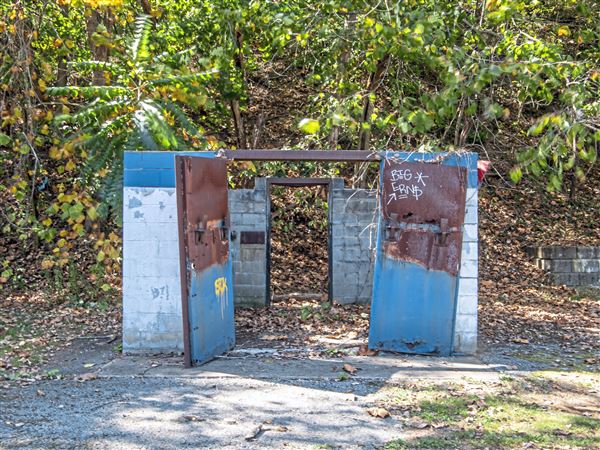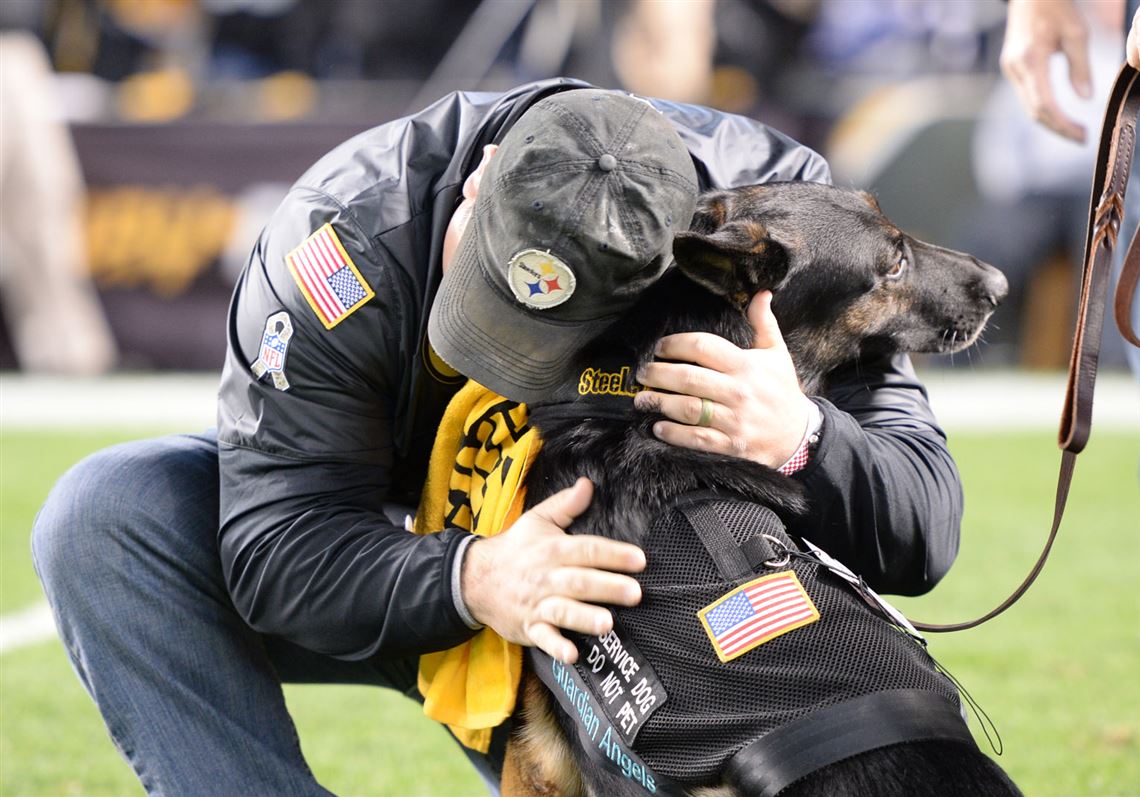Veterans teamed with service dogs have lower levels of depression and anxiety and higher levels of life satisfaction, according to a new study conducted by researchers at the Purdue University College of Veterinary Medicine.
The pilot research project indicates that veterans with service dogs “had significantly lower levels of post traumatic stress disorder” symptoms than vets who did not have dogs, said psychologist Maggie O’Haire, who led the study.
Local veterans with highly trained service dogs have insisted in several Pet Tales columns that the dogs improve lives and have even kept them from trying to commit suicide. The very business-like dogs ignore the reporter and photographer while focusing on the veteran’s face with a look that seems to say, “How can I serve you?” But that’s not scientific. That’s anecdotal. Ms. O’Haire thinks this study is the first to apply scientific methodology to show the value of service dogs.
Every organization that trains these dogs has a long waiting list. The cost of a dog and its training can be more than $22,000 and no government agency pays for any of that.
“The U.S. Department of Veterans Affairs has cited a lack of scientific research supporting service dogs for veterans with PTSD,” said Steven Feldman, executive director of Purdue’s Human Animal Bond Research Institute.
The institute co-funded the study with Bayer Animal Health.
“I hope the promising results from this study will prompt a renewed focus on the benefits that service dogs provide,” Mr. Feldman said.
Will this study convince government officials to fund dogs for veterans?
“I focus on the science,” Ms. O’Haire said. “Others will do with it what they may.”
Service dogs do not cure PTSD, the study said, for there is no cure. But dogs do promote “higher overall psychological well-being.”
Veterans with service dogs were more willing “to leave their house and go engage with society in different activities,” Ms. O’Haire said. And veterans with dogs had lower levels of absenteeism on the job.
Ms. O’Haire, who has a doctorate in psychology, is assistant professor of human-animal interaction at Purdue. She and other researchers worked with the nonprofit K9s for Warriors. Approximately half of the 141 veterans who participated in the study were on a waiting list to get a service dog. The others already had them.
Veterans and their service dogs form “lifetime bonds ... built on mutual love, care and devotion,” said David Van Brunt of Bayer Animal Health.
Purdue researchers will now move on to a project funded by the National Institutes of Health. Over an extended period, the large-scale clinical trial will study veterans with and without service dogs “to further investigate the efficacy and role of service dogs for military veterans with PTSD and their spouses,” the Purdue news release says.
Linda Wilson Fuoco: lfuoco@post-gazette.com or 412-263-3064.
First Published: March 2, 2018, 11:30 a.m.
















